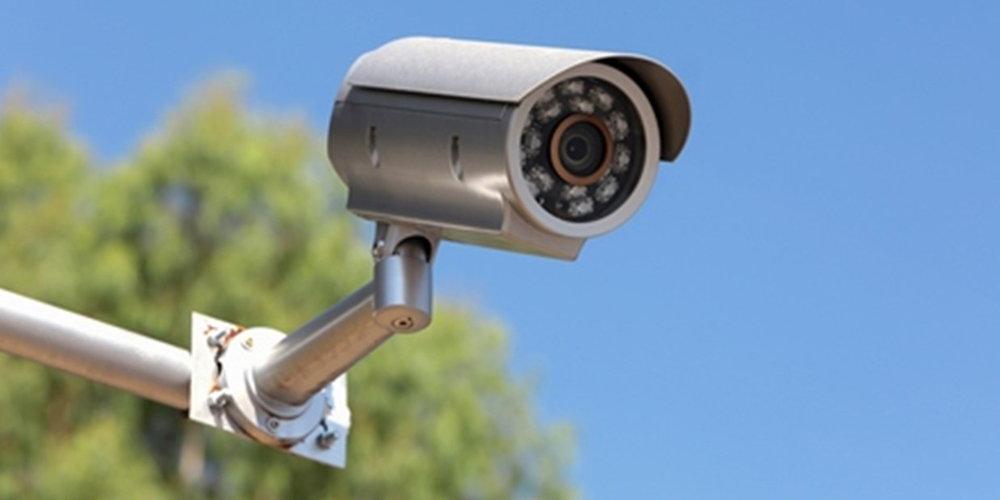
NR Square Enterprises is a Mumbai based, contractor offering wide range of Firefighting, Fire Alarm, Public Address, CCTV, Access Control services with different agencies, Site Survey, Designing of all kinds of Fire Fighting systems, Preparation of BOQ / Tender.
Currently NR Square Enterprises is working with Semi Government & leading private organizations. Our approach is to provide most reliable firefighting solutions and cost-effective services to our clients. As a dynamic leader we can provide a diverse range of top-quality services and installations all over India.
We are Specialized in:
- All type of Industrial & Commercial Installations.
- Retail / Departmental Stores.
- All types of Warehouses (Distribution Centres, Private, Public, and Climate Controlled).
- Family entertainment centres (Gaming zones).
- IT / Security systems (CCTV, Fire Alarm, Access Control System)
CCTV
CCTV stands for Closed-Circuit Television. It refers to a system of video surveillance that uses cameras to capture and transmit video signals to a specific set of monitors or recording devices within a limited area. Unlike broadcast television, which is publicly accessible, CCTV systems are designed for private or restricted use.
CCTV systems are commonly used for security and surveillance purposes in various settings, including residential areas, businesses, public spaces, and government facilities. The cameras in a CCTV system are strategically placed to monitor and record activities, deter potential crimes, and provide evidence in case of incidents or unlawful activities.
Key components of a typical CCTV system include:
Cameras: These are the devices that capture video footage. CCTV cameras come in different types, such as dome cameras, bullet cameras, and PTZ (Pan-Tilt-Zoom) cameras. They can be analog or digital, wired or wireless, and may have additional features like night vision or motion detection.
Video Recorders: The video signals from the cameras are recorded and stored on video recorders. These can be DVRs (Digital Video Recorders) or NVRs (Network Video Recorders), depending on the type of cameras used. DVRs typically work with analog cameras, while NVRs are compatible with digital IP cameras.
Monitors: CCTV monitors display the live or recorded video feeds from the cameras or recorders. They allow operators to monitor activities in real-time or review footage.
Cabling and Connectivity: CCTV systems require cables or network connections to transmit video signals from the cameras to the recorders or monitors. Depending on the system, this can be coaxial cables, Ethernet cables, or wireless connections.
Storage: CCTV systems need storage devices to save recorded video footage. This can include hard drives within the recorders or external storage systems.
Control Room: In larger installations, there may be a dedicated control room where operators monitor the video feeds, control camera movements (in the case of PTZ cameras), and manage the system's overall functionality.
It's important to note that the use of CCTV systems should comply with applicable laws and regulations regarding privacy and data protection. Different jurisdictions may have specific rules governing the use, placement, and retention of CCTV footage.
CCTV application Industries
Closed-circuit television (CCTV) systems are widely used in various industries for security, surveillance, and monitoring purposes. Here are some industries where CCTV applications are commonly found:
Retail: Retail stores, shopping malls, and supermarkets often use CCTV systems to deter theft, monitor customer behaviour, and investigate incidents such as shoplifting. CCTV cameras can be strategically placed to cover entry points, aisles, and cash registers.
xBanking and Finance: Banks, financial institutions, and ATM locations heavily rely on CCTV systems for security reasons. These cameras help monitor transactions, detect suspicious activities, and provide evidence in case of fraudulent activities or security breaches.
Transportation: The transportation industry, including airports, train stations, bus terminals, and ports, use CCTV systems to enhance security and monitor passenger movements. CCTV cameras are used to deter vandalism, monitor luggage areas, and ensure public safety.
Manufacturing and Industrial: Manufacturing facilities and industrial sites often employ CCTV systems to monitor critical areas, ensure worker safety, and prevent unauthorized access. These cameras can be used to monitor production lines, warehouses, loading docks, and restricted areas.
Hospitality: Hotels, resorts, and hospitality establishments utilize CCTV systems for security, guest safety, and loss prevention. CCTV cameras are typically installed in lobbies, hallways, parking lots, and other public areas to monitor activities and prevent theft or unauthorized entry.
Healthcare: Hospitals, clinics, and healthcare facilities employ CCTV systems for security and patient safety. These cameras help monitor access points, protect sensitive areas, and ensure the well-being of patients and staff.
Education: Educational institutions, such as schools, colleges, and universities, often use CCTV systems to maintain security on campus. CCTV cameras can monitor entrances, hallways, parking lots, and common areas to deter vandalism, prevent unauthorized access, and ensure student safety.
Government and Public Sector: Government buildings, public spaces, and law enforcement agencies utilize CCTV systems for surveillance and security purposes. These cameras help monitor public areas, detect criminal activities, and provide evidence for investigations.
Entertainment and Sports: Entertainment venues, stadiums, and sports arenas employ CCTV systems to ensure public safety, monitor crowds, and prevent unauthorized access. CCTV cameras can be strategically placed to cover seating areas, entrances, and parking lots.
Residential: CCTV systems are also commonly used in residential areas for home security and surveillance. Homeowners use CCTV cameras to monitor their property, deter burglars, and keep an eye on their surroundings.
It's worth noting that the specific applications and regulations regarding CCTV systems may vary depending on the country and local laws governing privacy and surveillance.
